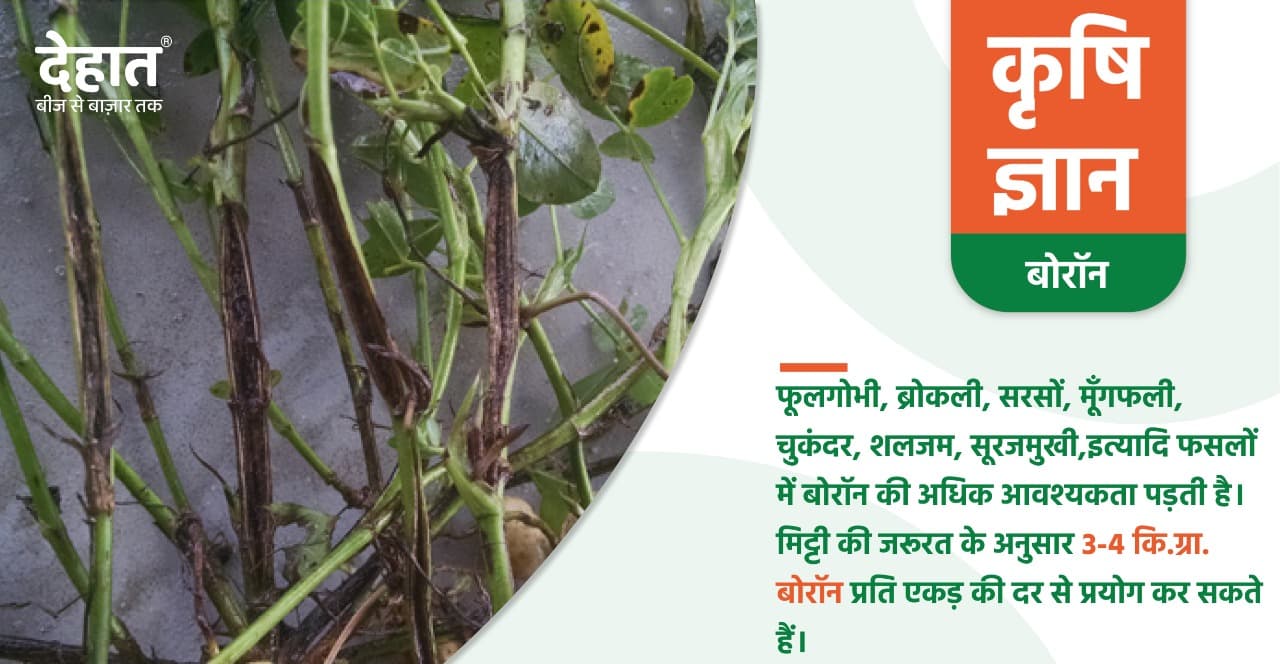boron fertilizer

Let us try to understand what is the opinion of agricultural experts on the need for boron fertilizer for plants and the ill effects of its deficiency on crops.
First of all, its effect is seen in the new leaves and buds of plants. Boron deficiency causes flowering but increases the impotence of pollen grains, which has a bad effect on the quality and yield of crops. Apart from this, the lack of boron stops the growth of the top part of the plants. The fall of unripe fruits increases and the shape of the fruits also becomes crooked.
Along with this, the growth of roots in plants stops. Sometimes fruits and stems also burst and a gum-like substance starts coming out from the trunk of fruit trees. However, the requirement of boron in dicot crops is higher than in monocot crops.
If we talk about dicot crops, then cauliflower, broccoli, mustard, groundnut, beet, turnip, sunflower, mango, jackfruit, litchi, grapes, etc., require more boron. On the other hand, the requirement of boron is relatively less in crops like onion, potato, cucumber, cucumber, wheat, barley, strawberry, lemon etc.
If we talk about its use, according to the need of the soil, 3-4 kg. Boron can be used at the rate of per acre. To see the early effect, 1-1.5 gm for spraying on the leaves of the crop. Use it by dissolving boron (20%) per liter of water. If you found this information important, then like this post of ours, and share it with other farmers.
जारी रखने के लिए कृपया लॉगिन करें

फसल चिकित्सक से मुफ़्त सलाह पाएँ
